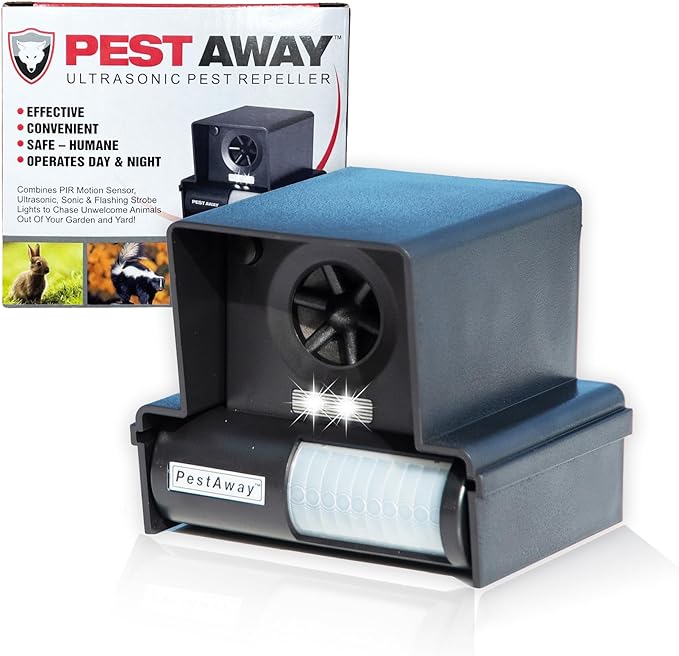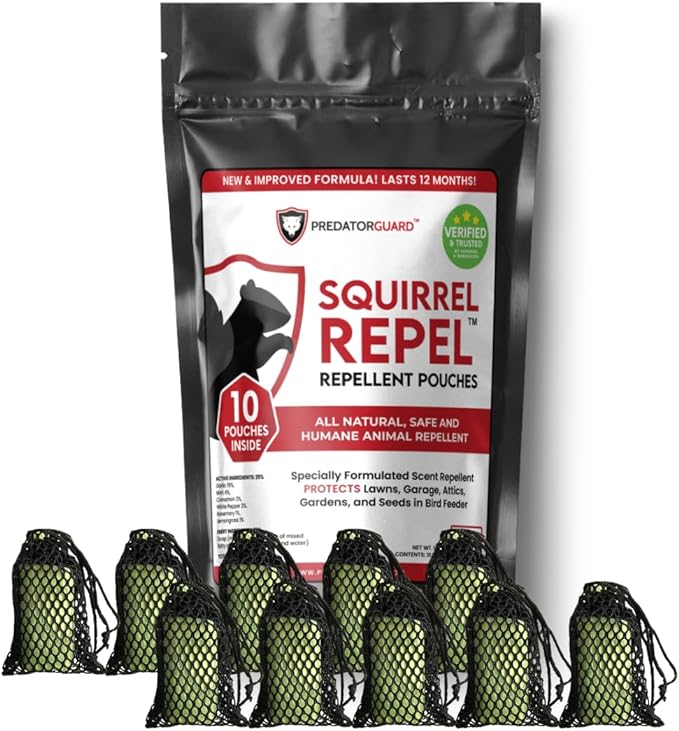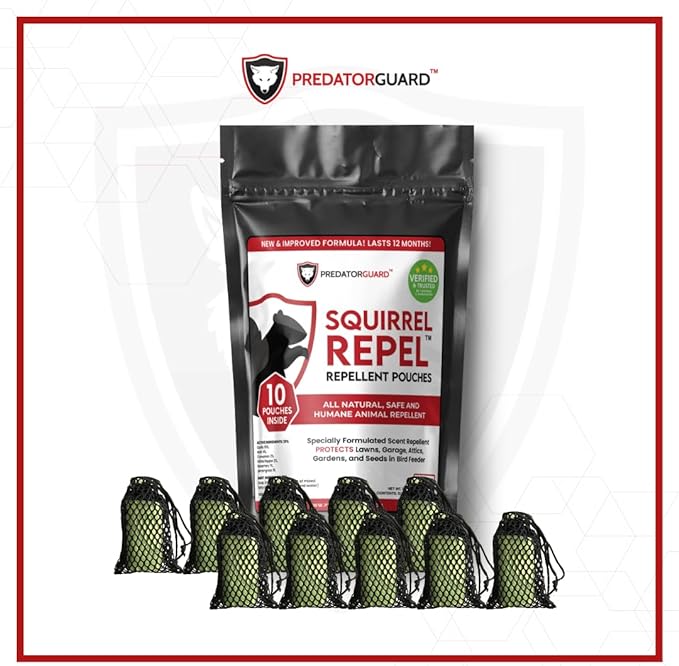
Squirrels
Squirrels are one of the abhorred nuisance wild animals in homeowners gardens.
Predator Advice
How To Get Rid of Squirrels
Squirrels are agile, populous and live high in treetops, making them a challenge to manage - especially outdoors. By adopting a persistent, coordinated approach to control, you can prevent squirrel damage and keep these nuisance animals at bay.
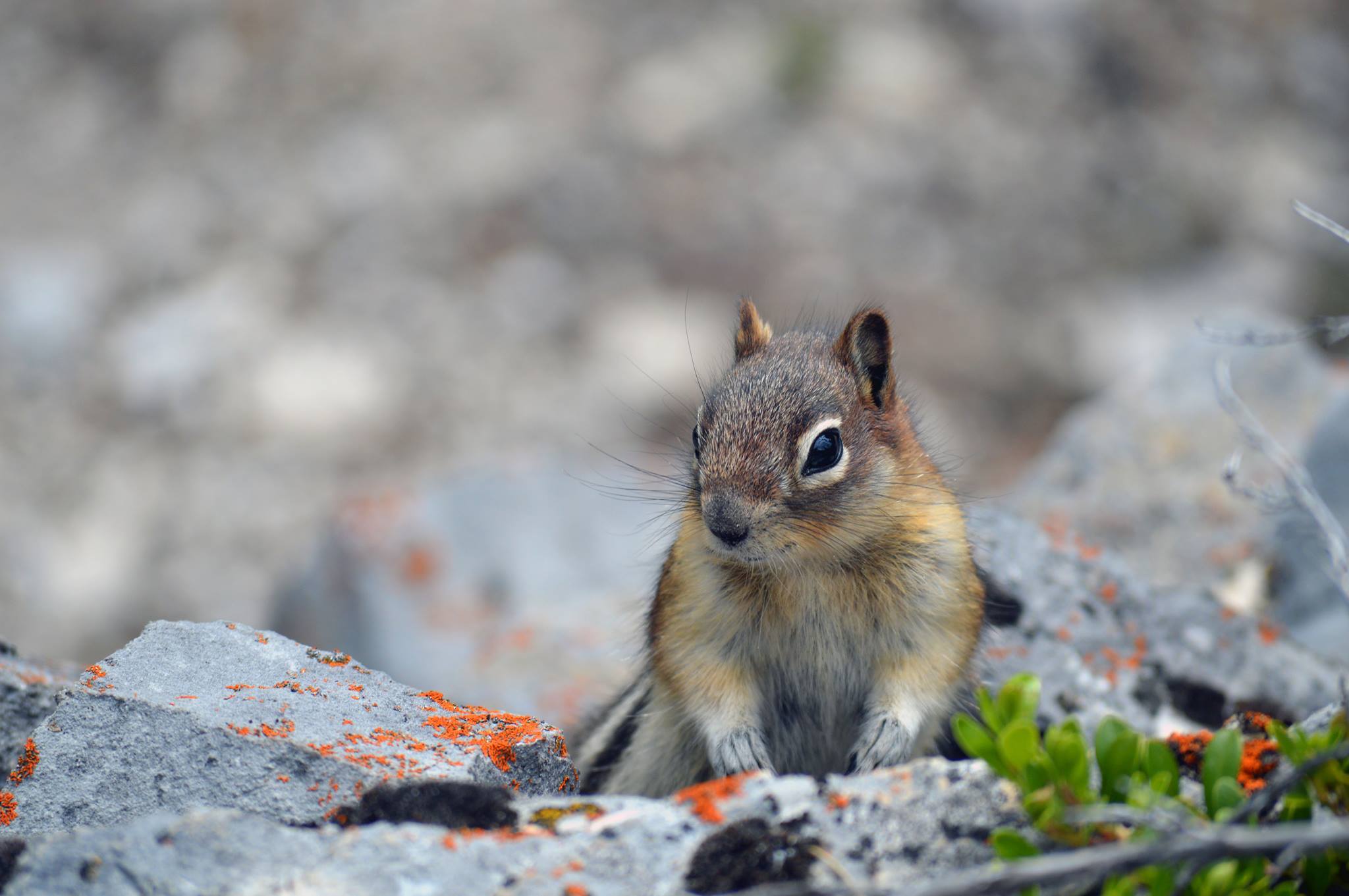
KNOW MORE
Rodent Family Line
Squirrels are members of the rodent family. They weigh approximately one pound and measure around 16-18 inches from nose to tail. They are active year-round.
Squirrels feed on a variety of foods including nuts, seeds, fungi, fruits, and the seeds in your bird feeder. They breed throughout the year, but particularly at their peak, in the winter and summer. After around six weeks, up to 5 young squirrels are born and raised in a nest for about three months. Squirrels prefer holes or cavities in trees (and your home's attic). If cavities aren’t available, they'll build a nest out of twigs and leaves high up in a tree.
Frequently Asked Questions
Like any wild animal, squirrels love an easy meal. Make sure that you rake up any fallen berries, nuts, acorns, fruits and bird seed around your home.
Do not leave pet food uncovered outdoors.
Remove trash and secure all compost and garbage bins.
Beneficial nematodes are an organic form of pest control that can help reduce the number of grubs. Squirrels can leap a distance of 10 or more feet, so trim any tree limbs that come within this distance of your house or your bird feeders.
Use a chimney guard and repair all holes that lead inside your house. Always use steel mesh to cover holes. Squirrels will chew through plastic hardware cloth or wood to gain access to warm indoor spaces.
Cover nearby electrical or telephone wires with plastic tubing (so squirrels cannot balance), to limit access to your roof.
Switch to squirrel-proof bird feeders, or add a squirrel baffle to your current feeder at the lawn. These microscopic organisms live in garden soil and consume garden pests such as the grubs that attract skunks.
Bird feeders often become a squirrels' main source of food. If you are unwilling to remove all bird feeders permanently, then use Nyjer seed, millet, safflower, canary seed and canola seed. These are all are ingredients that squirrels avoid.
Mix hot pepper flakes and seeds (capsicum) into birdseed. This is a non-toxic ingredient and will not harm or kill birds. Pepper seeds and flakes are disseminated naturally by birds eating these seeds in the wild.
If you love the sights and sounds of spring birds, make sure to invest in a bird feeder with a baffle—a hood that prevents squirrels from accessing the food. Baffles can be installed above a hanging bird feeder or below a bird feeder mounted on a pole or post.
Squirrels tend to avoid the strong smell of peppermint plants. Try planting mint pots at the edges of your vegetable garden to keep squirrels away.
Are squirrels eating your bulbs? Try planting daffodils, snowdrops, allium and hyacinth. Daffodils contain a toxin that makes them inedible, and squirrels appear not to like the taste of these other spring bulbs. If digging seems to be the greater issue, try laying down a protective barrier of chicken wire or hardware cloth after planting. You could also try laying down jagged gravel or rock over the bulbs, which squirrels won't like to dig into.
Squirrels hate strong odors. If squirrels are inside your attic or basement, place ammonia-soaked rags in tin-foil pie trays at various intervals. Once they leave the space, cover and secure any entry holes with wire mesh.
Is it Legal to Trap Squirrels? Check the regulations posted by your state’s department of wildlife (or fish & game). You may need to apply for a permit to trap squirrels.
In cases of where a squirrel can be heard in an attic, there’s most likely a litter of 3-5 baby squirrels there as well. The most common reason for a squirrel to enter an attic and choose to live there is that a female needs a safe place to give birth and raise its babies. It may take six weeks before a litter of squirrels is ready to survive without a mother.
Trapping squirrels usually becomes an ongoing process, once the neighborhood is populated with them. Using methods of exclusion and repellents is often a longer term solution.
Recommended Products
Our Top Picks
Blog posts
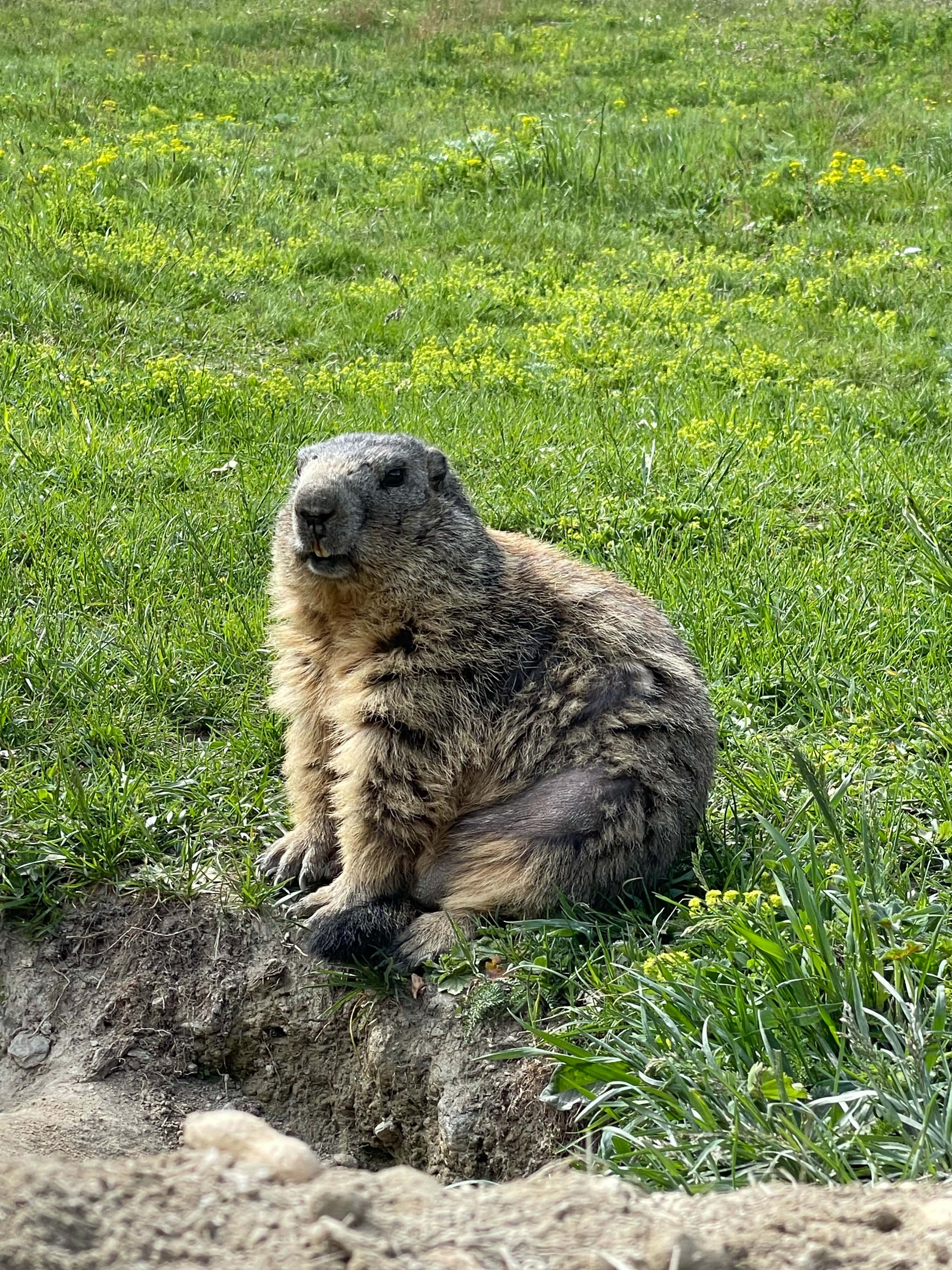
How to Get Rid of Groundhogs
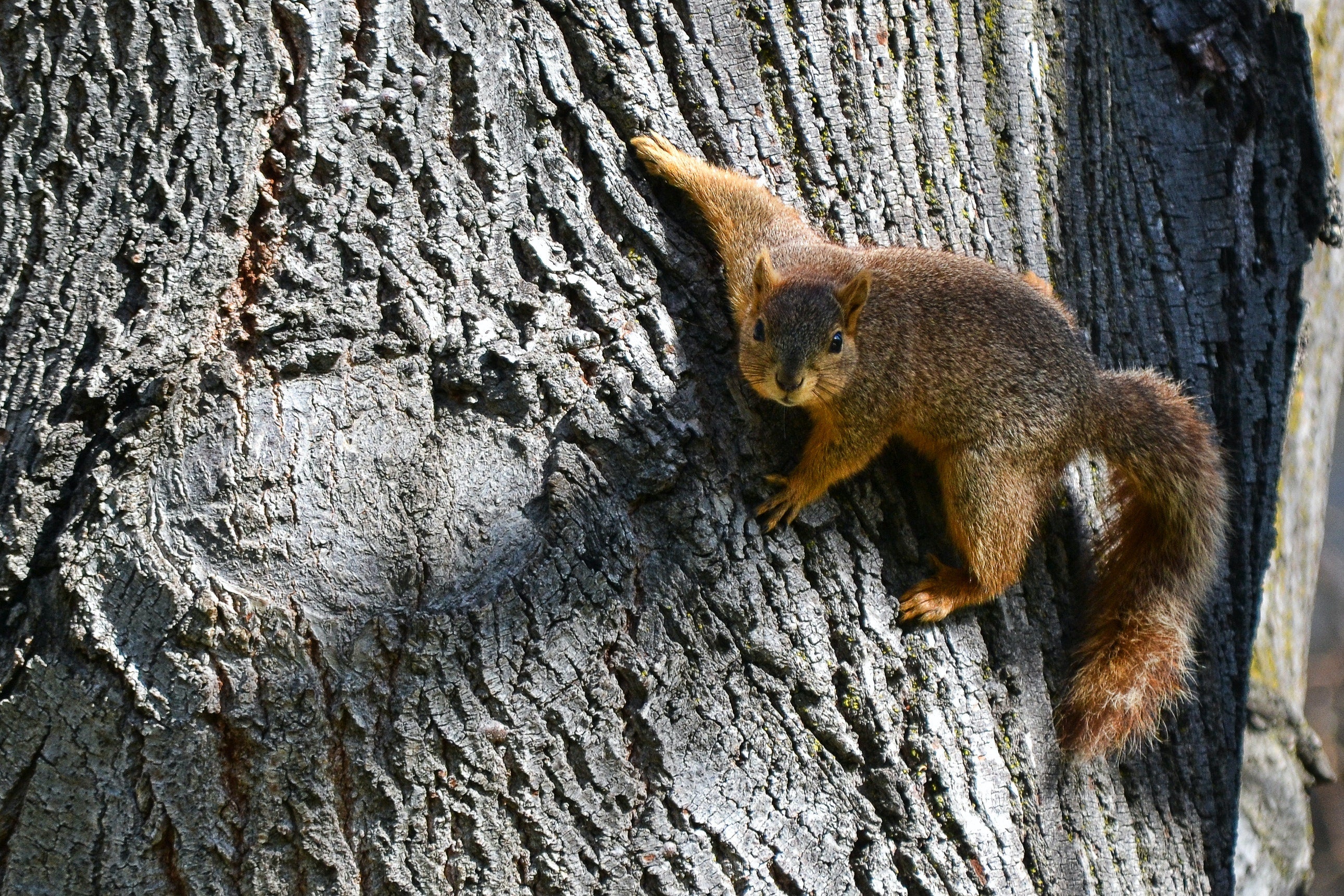
10 Best Squirrel Repellents: Keeping Squirrels at Bay
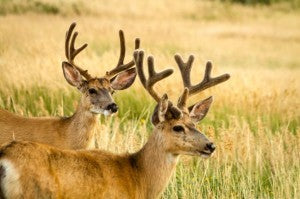
6 Pest Control Products You Can Find on Amazon
Contact us
Call Us:
800-537-4182
E-Mail Us:
support@predatorguard.com


